










The Brit crooks who gave Spain a bad




SPAIN’S latest heatwave has officially become the most intense ever recorded, according to national weather agency AEMET.
Blazing from August 8 to 17, the scorching spell was a staggering 4.6°C hotter than average, breaking the previous record of 4.5°C set in July 2022.
It lasted a brutal 16 consecutive days – the longest and hottest mid-August stretch since records began – and produced the warmest run of 10 days since at least 1950.
Over 200 local temperature records were shattered, mostly in the north and west. Health warnings soared and wildfire risks spiked.
Provisional data shows the first 20 days of August 2025 were the hottest since 1961, with AEMET predicting the full month will rank among Spain’s four hottest Augusts ever.
Of Spain’s 20 hottest periods on record, five belong to this single heatwave, with the remaining 15 all occurring since 2022.
Since 1975, Spain has logged 77 heatwaves, but the six most intense have all hit since 2019.














Malaga gets the


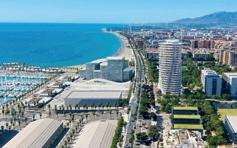

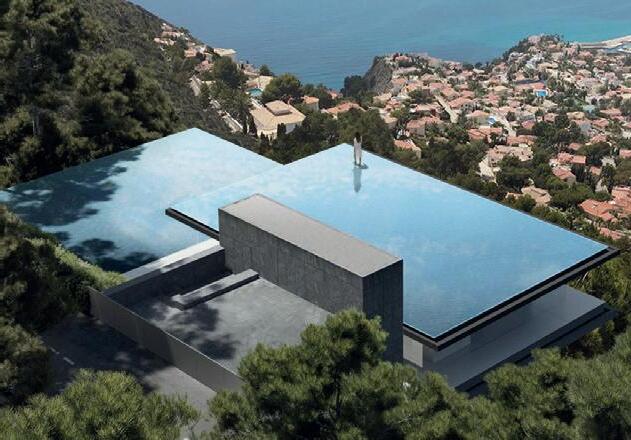







SPAIN’S countryside is still burning - and police say arsonists are to blame for many of the blazes that tore through forests, farmland and homes, killing four people.



arson









Police have revealed that 48 suspects have been arrested and 134 more are under investigation for suspected arson since June.






So far this year, more than 400,000 hectares of land - over twice the average in recent decades - have been consumed by fire
Hundreds of firefighters remain on the ground tackling the 12 ‘large fires’ still burning.
The biggest infernos include the fire in A Rua (Ourense), which scorched 44,424 hectares and became Galicia’s biggest blaze on record, while Uña de Quintana (Zamora) burned through 40,781 hectares




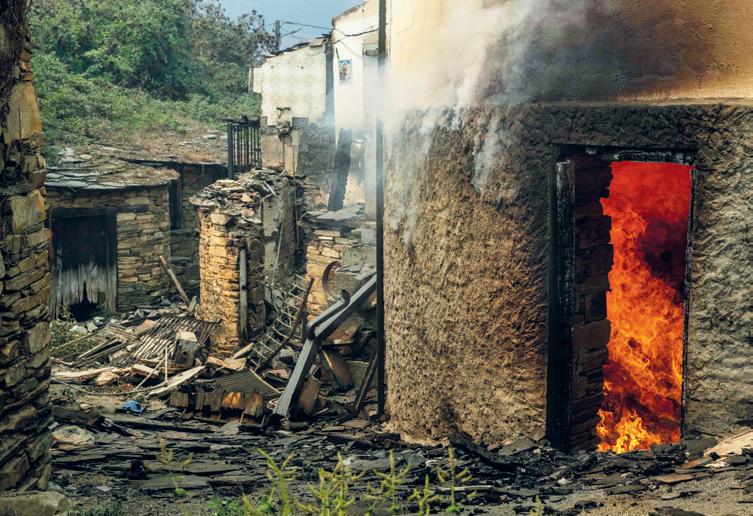

The government has declared 16 of the country’s 17 regions ‘disaster zones’. Only the Basque Country has been spared. Under the designation, affected residents and businesses
In the Costa da Morte region of Galicia, two men from Olveiroa (A Coruña) were cuffed in ‘Operation Coppair’ over eight separate wildfires.
Investigators say the pair sparked the blazes while burning stolen copper cable to strip it for sale on the black market. Using petrol and blowtorches, they allegedly set fires in remote, wooded spots - but left them smouldering and unattended.
The resulting infernos caused around €20,000 in damage and threatened towns including Camariñas, Cee, Dumbria, Vimianzo and Zas.






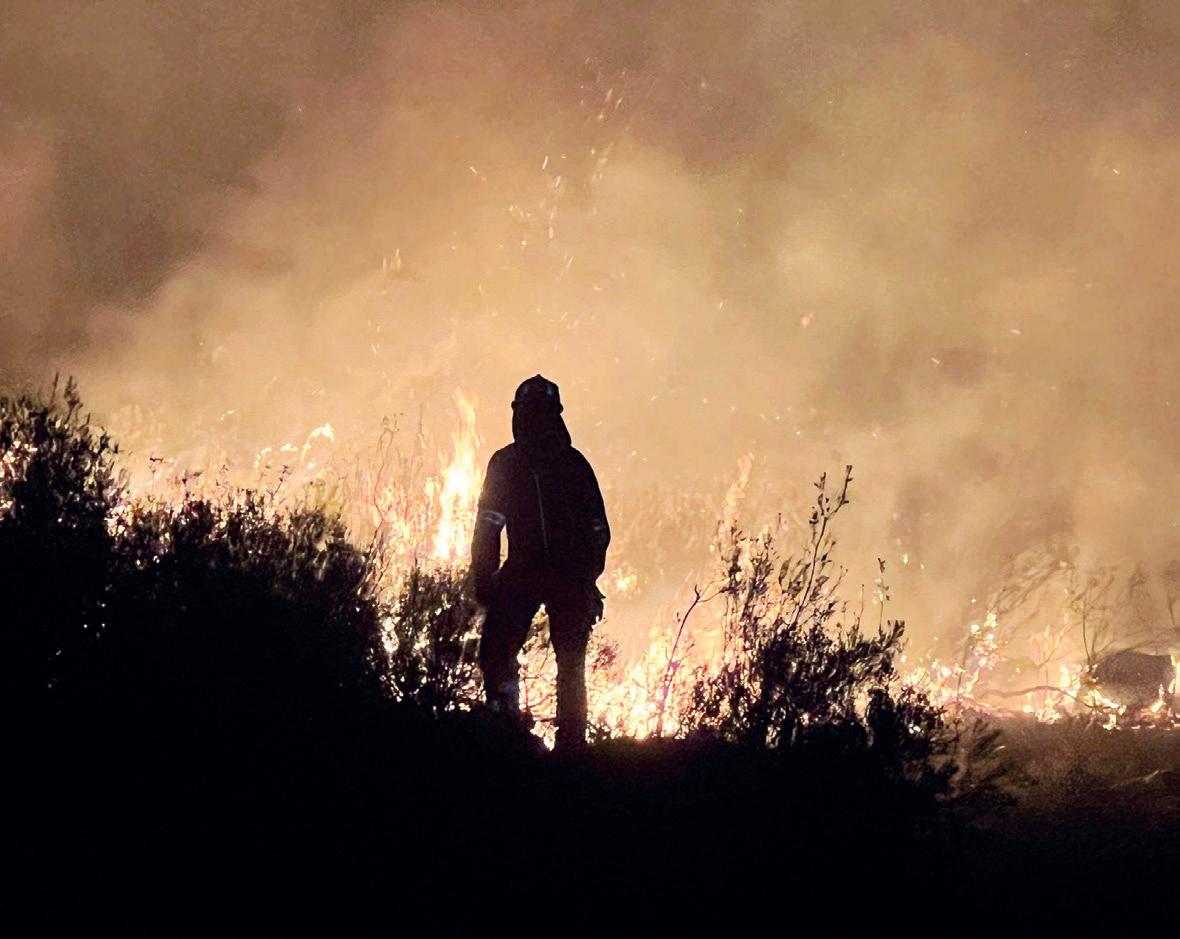

TOLL: Homes have been destroyed while thousands of people have battled the flames
tips led police straight to the suspect, who confessed during questioning. Meanwhile in Castilla y Leon, three separate cases rocked the region. A man in Zamora is accused of accidentally setting off a blaze in Puercas de Aliste–Gallegos del Rio that swallowed 3,000 hectares.
In Leon, another is under investigation for an ‘unintentional’ fire in Filiel–Lucillo and in Avila, officers say a man deliberately torched land in Cuevas del Valle, Mombeltran and El Arenal - destroying 2,200 hectares.
hectares of protected grassland. In Extremadura two men have been arrested for setting a fire to ‘clear undergrowth to enable hunting’.
Perhaps most shocking of all, in Avila province a firefighter admitted to setting a fire himself, telling investigators he wanted the extra work, while in Galicia, a 63-year-old woman in Muxía is being probed over five separate fires, while younger suspects in Ourense and Celanova face charges for deliberately torching forestland.
will be entitled to compensation for damaged property and emergency support for rebuilding. Opinion Page 6
Further south in Malaga province, another man has admitted to starting six wildfires in Teba. Some were lit just metres from people’s homes. Locals’
Elsewhere, a 48-year-old man was arrested near Madrid after allegedly setting off a blaze in the Cuenca Alta del Manzanares reserve that scorched 31

Almost 90 administrative fines have already been issued for breaches of fire safety laws.

FIVE people have been arrested in Torrent for trying to evict a squatter by setting fire to him with a blowtorch.
AN Alicante area
GP has been caught out recording secret videos of his patients during consultations for at least three years
AUGUST will close with average highs of 26C, making it the hottest Valencian region summer since at least 1950.
End result
A LONG feud between two neighbours in El Moralet finished last Friday when one of them died after being deliberately run over by his rival’s car.

A MAN selling puppies out of a cardboard box in the middle of an Elda street could be fined over €15,000. The two-week old American Staffordshire Terrier puppies also needed a special licence as they are on Spain’s list of potentially danger-

possession and sale without a licence of the puppies.











ous dogs. The owner faces penalties ranging between €2,404 and €15,025 for the HELP: how we aided Bleksley in the hunt for information about Parle


Police handed the dogs into the care of Elda municipal animal welfare officials. Officers went to the man’s home where they found a four-year-old dog which was the mother of the pups.
A BRITISH gang boss who orchestrated violent attacks from a luxury Barcelona penthouse has been jailed for 43 years.
head.





A €12,000 reward is on the table for information that leads to the capture of one of Britain’s most wanted men – feared ‘double killer’ Kevin Parle. The 6ft 6in man, nicknamed ‘Hemp’, has been on the run for over 20 years after allegedly gunning down
THREE men used counterfeit notes to pay for a €850 bottle of premium champagne at an Alicante venue.
The trio aged between 22 and 26 years have been arrested by the Policia Nacional.
Bank of Spain specialists said the fakes were ‘dangerous’ because of their high quality.
Officers seized 18 fake €50 notes that looked genuine at first glance but some of them shared the same numbers.
The venue manager also handed over another €50 note used for payment earlier, which also had shared numbering.
two people in Liverpool – and is now linked to a double murder in Estepona. The Olive Press has tracked the fugitive for years and helped former police officer Peter Bleksley in his hunt for more evidence.
Sources confirm Parle was working as muscle for a drug gang in Marbella’s Puerto Banus as recently as 2022. He reportedly teamed up with Manchester gangsters smuggling drugs in crisp pallets from a shady Costa warehouse.
He has also been linked to the Alicante area.


Now, Crimestoppers is offering £10,000 (€12,000) for tip-offs that lead to his arrest.











The privately educated Liverpudlian is described as white, stocky, with ginger hair, blue eyes, and a distinctive scar on the left side of his
By Walter Finch of
In 2004, Parle allegedly blasted 16-year-old Liam Kelly to death over a £200 debt. Just 14 months later, he was linked to the horrific killing of Lucy Hargreaves, 22, who was gunned down as she slept before her home was set alight.
Police suspect she was not the intended target – the killers were hunting her boyfriend.
Now, Parle is believed to be hiding among thousands of expats in Spain.
UK cops also think he may be tied to the 2019 disappearance of Danny and Liam Poole, a British father and son last seen in Estepona during a suspected drug deal. Parle has been spotted as far afield as Asia – but has always slipped through the net. Anyone with info is urged to contact newsdesk@theolivepress. es anonymously.

Jamie Rothwell, 38, from Salford, ran a massive drug and gun network from Spain while hiding from UK police. Using the EncroChat alias ‘livelong’, he boasted of smuggling cocaine, ketamine, and heavy weapons – including AK-47s and rocket launchers – into Britain. In 2020, he ordered a fake pizza delivery hit on David Barnes, stepfather of rival Liam Byrne. Barnes was shot three times in the leg. Rothwell was arrested in a dramatic raid in Barcelona, then extradited. He admitted conspiracy to supply drugs, possess firearms, and cause GBH.
Judge John Potter called him ‘ruthless’ and ‘at the top of the organisation’. He’ll serve 25 years for firearms and 18 for drugs, backto-back. Nine other gang members were also jailed –two ringleaders got 38 years each.
See Dirty Dozen, page 6







ARE THEY OR AREN’T THEY:




HOLLYWOODS’S rumoured new A-list couple, Ana de Armas and Tom Cruise, have been caught soaking up the sun on a summer getaway in Menorca – sending the romance rumours into overdrive.
The pair were snapped sailing along the Balearic island’s stunning southwest coast, enjoying turquoise waters and golden sunshine aboard a luxury yacht.
Their trip began in Ciutadella, a historic harbour town famed for its cobbled streets, Gothic cathedral and buzzing marina packed with bars and restaurants.
Locals enjoying a drink on the waterfront could easily have spotted the Top Gun star and the Blonde actress as they set sail south.
The sighting is just the latest in a string of public appearances by the pair since February, as speculation grows that the Hollywood heavyweights are far more than just friends.
Judge who charged PM Sanchez’s wife with corruption now under investigation
THE judge who charged Pedro Sanchez’s wife, Begona Gomez, with embezzlement is now facing an investigation of his own.
Juan Carlos Peinado, the judge overseeing the corruption probe into Gomez, is under fire after Socialist ally Felix Bolanos filed two formal complaints accusing him of misconduct. The complaints revolve around legal proceedings from April, when Bolanos, a former top official in Sanchez’s office, was summoned to testify as a witness. Gomez is accused of influence peddling, corruption, and misappropriating public
By Ben Pawlowski
funds. Peinado accused Bolanos of giving false testimony under oath, referring the matter to the Supreme Court for further investigation. However, the Supreme Court cleared Bolanos of any wrongdoing in July, citing a complete lack of evidence. It also slammed Peinado for failing to consult the Prosecutor’s Office before pushing the case forward. In his complaint, Bolanos claims Peinado acted irregularly during questioning, even shouting at him for smiling at one point. Meanwhile, Gomez and her


FIGHT IS ON: Gomez and Peinado are both in the firing line
aide, Cristina Alvarez, are due in court on September 11 over allegations that Alvarez used public resources to assist Gomez with private business during her time at Madrid’s Complutense University. The probe into Gomez, which
was launched by the farright union Manos Limpias in April, has already sparked chaos in Sanchez’s government. Despite his claims of his wife’s innocence, the corruption storm has intensified, with growing calls for Sanchez to step down over the mounting scandals surrounding his administration.
I ALMOST can’t believe the outrage in my own inner voice. How dare they come over here and concrete over one of the most beautiful and unspoilt coastal paradises in southern Spain!
For a moment, I wondered if I’d lost the plot entirely - maybe developed schizophrenia - and the voice in my head was some demented demon version of me.
with too many others.
It’s a strange headspace to be in, especially for an expat Brit who’s dabbled in property out here. But angry I am - outraged, in fact - and I know I’m not alone.







SPANISH Oscar-winning actor Javier Bardem - married to Penelope Cruz - has sparked outrage after calling Israeli soldiers ‘Nazis’ in a social media post.
The 54-year-old actor shared a 2018 video on Instagram showing an Israeli sniper shooting an unarmed Palestinian youth, while soldiers cheer in the background.
In his updated post, Bardem compared the Israeli Defence Forces (IDF) to Nazi officers,



referencing Amon Goth from Schindler’s List and accusing the IDF of applying ‘terror and dehumanisation’ against Palestinians.
While some supporters praised Bardem’s message, others criticised him for comparing modern-day soldiers to Nazis, calling it ‘ignorant’ and ‘offensive.’
The post comes amid ongoing violence in Gaza, where over 53,000 Palestinians have died since October


KING Felipe cut short his family holiday in Greece to return to Spain while wildfires raged across the country.



Rubles, not Euros.


I am outraged at new mega-project plan - but red tape is sure to come to the rescue


The 57-year-old monarch, who had been soaking up the sun in the Greek islands with his wife, Queen Letizia, and their daughters, Princess Leonor, 19, and Princess Sofia, 18, flew back to Spain to oversee the military efforts to fight the devastating wildfire crisis.





In response to the crisis, King Felipe oversaw the deployment of 2,000 additional soldiers, bringing the total number of troops to 3,500 in the fight against the flames.




King Felipe and Queen Letizia will visit areas devastated by wildfires from next week to ‘show their gratitude to all the teams that contributed to fighting the fire and protecting the population’.





But that can’t be right. I know the sort of nonsense that evil voice might come up with, and believe me, campaigning against idiotic town planning decisions wouldn’t be on the list. No, what’s happened is this: I’ve become a NIMBY in Spain. Or as the Spanish put it, oposición a la ubicación de cualquier tipo de construcción o proyecto problemático en su vecindario. I didn’t see it coming, but here we are. Spain is now officially my backyard - and I’m all for keeping it nice, peaceful, and not sharing it













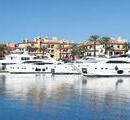
Thirty years ago, this stunning area didn’t even have a local environmental management plan. That lack helped kill the project then, so it’s hard to see how the current versioncovering the size of 80 football pitches - is going to break ground anytime soon.








From what I hear, aside from the local council in Tarifa, there aren’t many fans of the new mega-resort planned beside Los Lances beach - 730 ‘luxury’ homes and 1,360 hotel beds that the council’s shortsighted majority has just voted through.
Yet, approved it has been, despite 157 formal objections, the presence of two national parks within metres of the site, and dire warnings about environmental disaster - all in a town already struggling to supply water to its existing population.
But don’t panic just yet. As I’ve said before, Spain has its own unique rhythm, especially when it comes to large-scale building projects.





I suppose the 16 councillors had Euro signs flashing in their eyes. Word is, this isn’t even a new idea - it’s a resurrection of an old scheme from the 1990s. Back then, it was rightly shelved, and one suspects the millions clouding judgment now may be
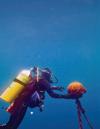

As the old English adage goes: Rome wasn’t built in a day. Which is why I’m 100% certain these 2,000 homes and hotel beds won’t be rising from the sand in my lifetime - or in the lifetime of anyone currently breathing. Why? Because, as I’ve come to appreciate, Spain has one glorious saving grace: layer upon layer of cascading red tape. Yes, it’s maddening at times - but it just might be the very thing that saves Tarifa.

A NARCO-BOAT seized from traffickers is now on the right side of the law - patrolling Javea’s waters.
The 7.4-metre long vesselvalued at €75,000 - has a powerful 300 horsepower engine.
It was handed over by a court to the Javea Policia Local. The boat had barely been used with the engine clocking just 50 hours of service.
The semi-rigid craft will allow the police to respond quicker to maritime incidents, and to help in emergency situations. It has been named L’Scobeta in recognition of Javea’s history and maritime roots. L’Scobeta was an old coastal watchtower strategically located in the Granadella area.
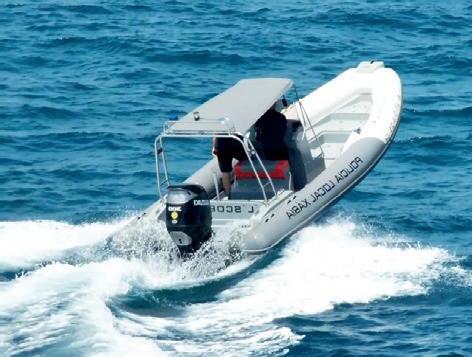












OVER 20,000 people are ex-

pected to enjoy this year’s Benidorm Pride week which starts on Monday.
The highlight for many will be the main Pride Parade on September 5.

concert featuring 16 acts.

It starts at 4.30pm from Rincon de Loix before going along the Levante Promenade to the Julio Iglesias Auditorium.

The venue will then host a free


The week-long celebration is into its 15th year and also stages pool and beach parties as well as live music to celebrate gay and lesbian culture. Organiser, Santos Torres, said it is regarded as ‘one of the best pride events held in our country’. He thanked Benidorm council for its continued support and promised more activities than ever before.
A MASS outbreak of food poisoning affected at least 146 guests at La Manga’s Cavanna Hotel over the weekend.
Dozens of people including eight children needed ER treatment at Santa Lucia Hospital in Cartagena.
It’s the biggest such outbreak seen in Spain for years.
Parts of the hotel looked more like a war zone on Sunday with a field hospital set up and stretchers left in corridors.


Multilingual support Bills in your language Free calls from abroad
info@energynordic com 900 696 820 (freephone) energynordic com
By Alex Trelinski
Test results from Murcia's Ministry of Health confirmed salmonella as the cause and the hotel's kitchen was shut down so that it could be thoroughly cleaned.
The Cavanna Hotel in a statement released on Monday expressed its willingness to ‘collaborate with the health authorities’.
It added that ‘all resources had been mobilised to help affected guests’.
Some guests suggested that a spinach-filled pasta dish - and specifically its sauce - could have been the culprit, but there has been no confirmation from health officials.
Susan, from Talavera de la Re-
ina, said her daughter, 15, ate the spinach dish on Saturday and became feverish.
The popular seafront hotel had 800 guests and the first problems surfaced on Saturday.
People reported suffering from fever, vomiting, and feeling tired with 28 food poisoning cases reported.
That went above 100 the next day, with food still being served in the dining room until Sunday afternoon, despite sickness spreading around the hotel. It was reported that the Health Ministry had no initial evidence that the outbreak was food-related.
Entire families were suffering from vomiting and diarrhoea, and the hotel’s function room became a temporary hospi-
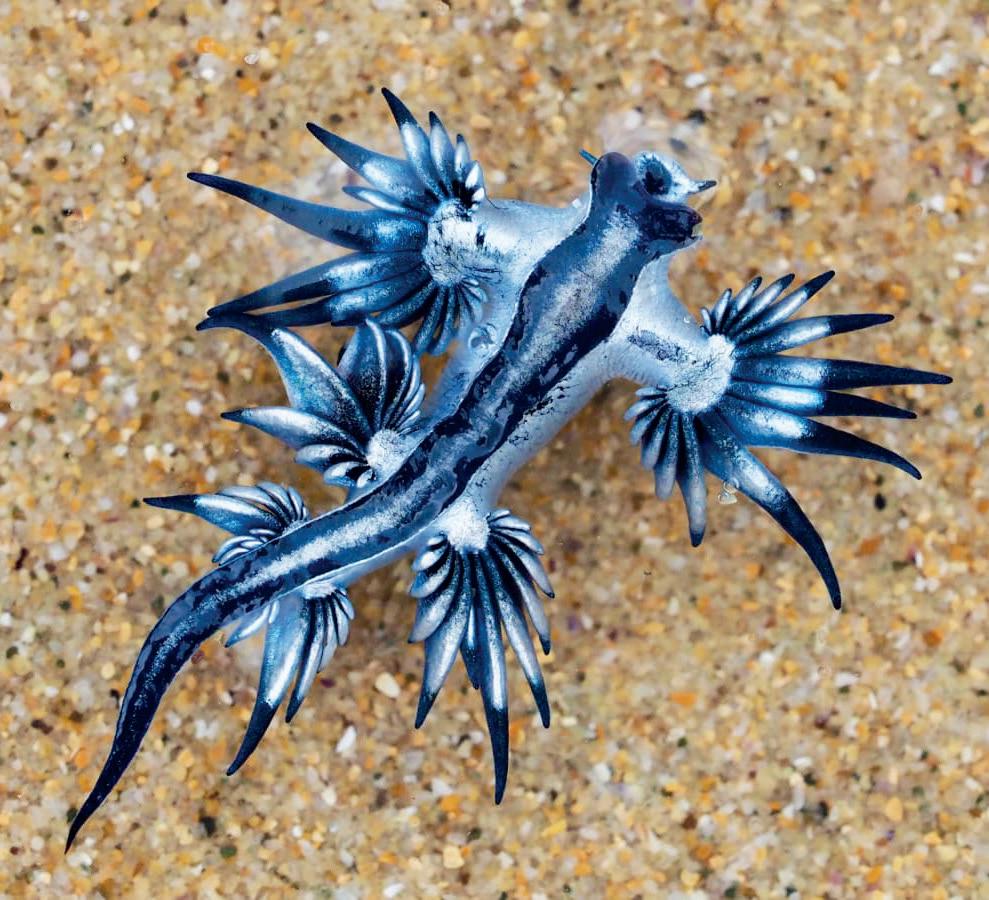
CALP has taken a major step to protect one of its largest green spaces. The town council has approved starting the process to reclassify Garduix I and II, Pla Feliu I and II, and Ráfol I and II from developable land to green and public-use areas.
The motion passed with support from Somos Calpe, PSPV-PSOE and Compromís, the Partido Popular abstaining, and Defendamos Calpe voting against.
Together, these sectors make up more than 300,000 m² of green space in a residential area. While they were listed as developable in the 1998 General Urban Plan (PGOU), they have remained undeveloped rural land for 27 years. Under current rules, this
allows the council to reclassify them.
Next, the plan moves to the Territorial Urban Planning Commission of the Generalitat Valenciana, which will continue the process.
The council intends to acquire the land by compensating owners based on its rural value rather than on unrealised development rights. Technical reports value it at €5.37 per square metre.
This decision changes Calp’s urban planning approach. Unlike before, owners will not be compensated with building units or extra volume in other areas.
Instead, the town is introducing a new method of managing development, prioritising green space over construction.
tal with pool loungers used as stretchers.
Ambulances from La Manga as well as further afield from Cartagena, Murcia and Los Alcazares scrambled with around 20 medical staff. Patients were either treated at the field hospital or in their rooms with rehydration fluids. Meals were subsequently provided by an external catering firm, but guests also ordered takeaways or dined at local restaurants.
Dozens of tourists besieged the reception desk on Sunday afternoon demanding forms to file complaints and requests for refunds or compensation. Some checked out early after making their feelings known about what had happened.
SWIMMING has been banned intermittently along Guardamar del Segura’s beaches in the past week due to appearances by the venomous Blue Dragon mollusc. Red flags were raised along 11 kilometres of coastline last Wednesday, and then at different times over the weekend.
The first sightings were at Playa Vives eight days ago.
The Blue Dragon is a poisonous species whose bite can cause nausea, vomiting and intense pain. Despite their striking blue and shiny appearance, they should not be touched under any circumstances - not even with gloves.
The mollusc was also spotted at neighbouring Torrevieja’s La Mata beach but there have been no swimming restrictions there.

BENIDORM’S TM Tower will become the tallest residential complex in Europe - surpassing the city’s Intempo building.
Torrevieja-based developer TM says the new structure will be 230 metres high with 64 floors. It will be 28 metres taller than the neighbouring Intempo skyscraper which has 49 floors.
Further details of the project in the city’s Poniente area will be announced in September. The tower will have apartments going up to four bedrooms and common areas such as swimming pools, a gym, a cinema room, a sports zone, and a sky bar with an observatory.
A RAIL link between Gandia and Denia scrapped in 1974 might return depending on the outcome of a feasibility study.
The Valencian government will hand out a €101,000 contract to conduct the research.
It will examine various options to link the Marina Alta and La Safor regions to the current Tram network.
President Carlos Mazon said: “This is essential infrastructure for the connectivity and prosperity of one of Valencian Community's most important tourist areas.”
He also called on the national government to pay for any new link.
Talk of restoring the rail line is far from new.
A feasibility study by regional public transport firm FGV in 2022 concluded that it could be reopened for €250 million.
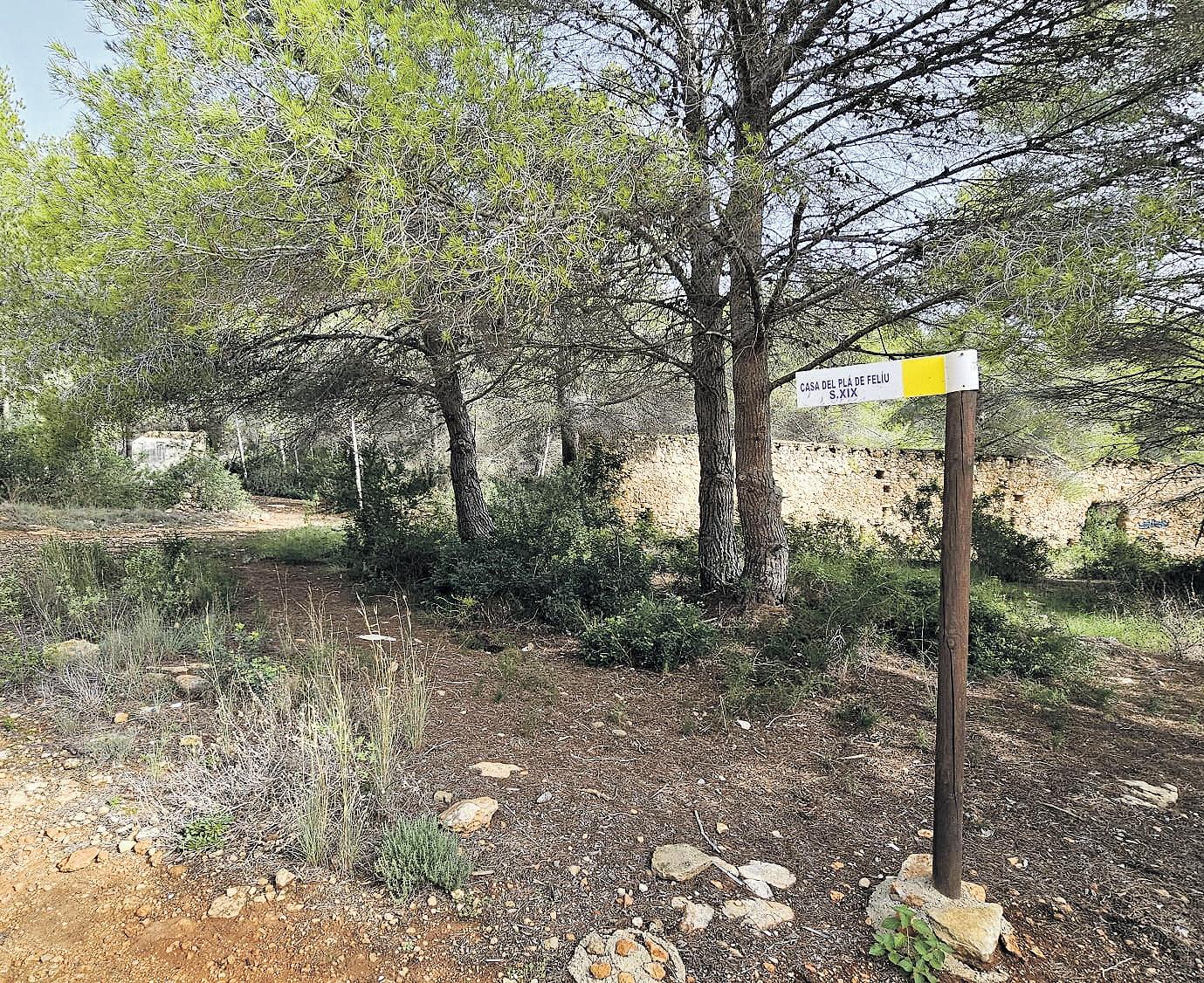


THE Mediterranean Sea has been hit by the most extreme marine heatwaves ever recorded this summer - putting the region’s delicate ecosystem at serious risk, experts have warned.
Sea surface temperatures in parts of the Balearic Islands, including off the coast of Majorca, soared above 30ºC in late June and early July - more than seven degrees higher than the seasonal average. Marine heatwaves - defined as prolonged periods of unusually high sea temperatures - are becoming more frequent and severe due to climate change, with serious implications for marine life, fishing industries and even tourism across southern Spain.
“We have a lot of evidence showing that rising temperatures are driving ecological changes every year,” said Dr Oscar Esparza Alaminos, Coordinator of Marine Protected Areas at WWF España.
“The first and most important impact is the loss of biodiversity - we have many local species that are vital to the Mediterranean ecosystem.”
While warm water may be welcomed by beachgoers, scientists warn that these conditions can supercharge the spread of harmful bacteria, algae and invasive species, while threatening native marine life that cannot adapt.
The Alboran Sea, between the Costa del Sol and northern Morocco, is already seeing major shifts in marine populations. Warmer waters are attracting tropical species typically found in the Canary Islands, such as grouper, lionfish and even whale sharks, into Spanish waters.
But the changes aren’t all exotic and exciting.
The soaring temperatures are also driving blooms of nuisance jellyfish and invasive tropical Asian seaweed, which is disrupting local ecosystems and causing headaches for beach resorts across the Costa del Sol.
“The loss of keystone species unbalances the ecosystem, and at the same time, we are seeing a tropical species invasion,” warned Dr Alaminos.
“These changes also affect ecosystem services like fishing, with consequences for both local economies and food security.”
The Mediterranean - already one of the world’s most vulnerable climate change hotspots - is warming 20% faster than the global ocean average, according to climate experts.
Over the past 40 years, the region has gone from experiencing one marine heatwave per year to an average of four, covering vast areas of the sea.
About 90% of the excess heat from global warming is absorbed by the oceans,

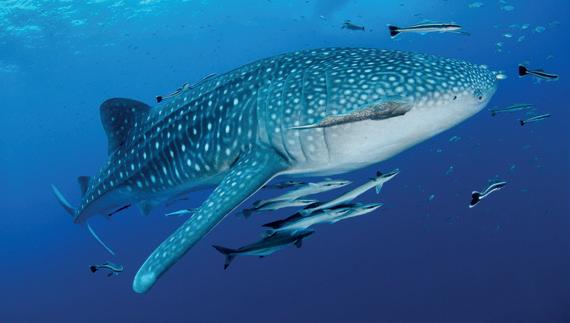
By Josie Sharp

while shifting wind patterns have reduced natural cooling, meaning these heatwaves are now harder to avoid and more damaging.
Globally, the effects have been devastating: Western Australia saw its worst coral bleaching on record, and Norway’s salm-
on farming industry has suffered massive losses from sea lice outbreaks
- both linked to rising sea temperatures.
“We need a global response to this problem,

because climate change is not a local issue,” added Dr Alaminos.
“We must implement protective measures in marine areas before
HEAT WORRY: As the Med warms up invasive species like Japanese Seaweed are moving in
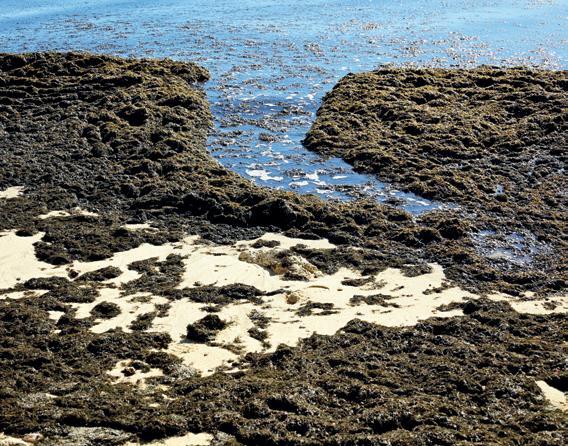
it’s too late.”
As the Mediterranean continues to heat up, scientists are urging urgent international cooperation, sustainable
fishing practices, and better monitoring of protected areas to safeguard one of the world’s most diverse - and most fragile - marine environments.


Voted top expat paper in
A campaigning, community newspaper, the Olive Press represents the huge expatriate community in Spain with an estimated readership, including the websites, of more than two million people a month.
SPAIN is still smouldering. Villages remain under threat, thousands of firefighters are stretched to breaking point, and families are living with the fear that the wind might shift and send flames racing towards their homes.
Yet what is most disturbing is not the sheer scale of destruction – more than 400,000 hectares gone this year, twice the historic average – but the fact that so much of it was man-made.
Police have arrested 48 people and placed 137 more under investigation for suspected arson. In Galicia, men allegedly set fire to forests while burning stolen copper cable for resale. In Malaga, another confessed to lighting fires within sight of people’s houses.
Others claim carelessness, yet the result is the same: scorched earth, poisoned air and livelihoods reduced to ashes - and tragically the loss of human life, not to mention the toll taken on wildlife.
The excuses no longer wash. Whether reckless or deliberate, fire-starters are gambling with lives and entire ecosystems. These are not minor lapses of judgment but acts of sabotage against communities already suffering from drought and climate change.
Spain cannot afford to treat arson as a seasonal nuisance. It must be pursued with the same seriousness as organised crime. Tougher penalties, faster investigations and harsher enforcement of fire safety laws are essential. So too is education: rural populations must be reminded, relentlessly, that one match can undo generations of hard work.
Wildfires are not just a natural disaster anymore. They are increasingly a human one – and those responsible must feel the full weight of justice. Spain is burning, but it does not have to keep burning.
PUBLISHER / EDITOR
Jon Clarke, jon@theolivepress.es




Dilip Kuner dilip@theolivepress.es Walter Finch walter@theolivepress.es
Yzabelle Bostyn yzabelle@theolivepress.es
Samantha Mythen samantha@theolivepress.es
Tom Ewart Smith tom@theolivepress.es
Victoria Humenyuk Makarova (+34) 951 154 841 admin@theolivepress.es

Alex Trelinski alex@theolivepress.es
Joshua Parfitt josh@theolivepress.es
Dylan Wagemans dylan@theolivepress.es
MANAGER
Estefania Marquez (+34) 658 750 424 accounts@ theolivepress.es
please contact +34 951 15 48 41



ENQUIRIES (+34) 951 154 841 distribution@ theolivepress.es
WHEN British drug trafficker
Brian Colin Charrington died last month in Villajoyosa, near Benidorm, it closed one of Spain’s most notorious fugitive chapters. The former Middlesborough car dealer, who became an international cocaine kingpin, spent years evading justice amid luxury villas, fast cars, and a sprawling empire on the Costa Blanca.
For decades, Spain’s sun-drenched costas offered a haven for fugitives, particularly while no extradition treaty existed with the

The former Middlesborough car dealer turned international drug kingpin died on July 22 while awaiting a court decision on whether he would begin serving a prison sentence in Spain related to a 2013 cocaine bust.
Charrington was first arrested in 2013 at his luxury villa in Calpe, on the Costa Blanca, after authorities uncovered his international drug empire.
In 2018, courts heard how he had shipped 192 kilos of cocaine from South America. Alongside his son, Ray Charrington, he was convicted of money laundering.
Dubbed the moniker ‘El Narco de Wikipedia’ for reportedly editing his own page on the website, Charrington was handed a 15-year prison sentence and fined €31.2million. He died a free man aged 68 while waiting for a judgement on whether he was too ill to serve his sentence.
AS SPAIN struggles in a deadly spate of wildfi res, a remarkable success story in Andalucia is giving hope for the country’s scorched countryside - and it is largely thanks to bison.
Following the recent death of notorious British drug trafficker Brian Colin Charrington in Spain the Olive Press highlights 12 expat criminals who took refuge in the country
By Olivia Idle
UK. The so-called Costa del Crime became synonymous with Marbella mansions, lavish parties, and criminals living in plain sight.
Figures like Ronnie Knight, Charlie Wilson, and Freddie Foreman defined the era, mingling with celebrities while laundering fortunes and building criminal empires.
But the era of impunity ended. In 2006, Operation Captura – a joint effort by the UK’s
The villainous wide boy and flashy London club owner - and husband of actress Barbara Windsor - was a key player in founding the Costa del Crime.
After dabbling in several illicit enterprises in the UK, he moved to Spain and established himself in Fuengirola, revelling in the era which lacked an extradition treaty between the two countries.
Years of living the high life with no consequences eventually closed in on the wheeler dealer, and the law was also creeping up on him for his role in the £7million Security Express Robbery in 1983.

National Crime Agency, Spanish police, and Crimestoppers – brought many fugitives to justice. Yet Spain’s allure persists, with criminals still hiding among tourists, adopting false identities, and living in fortified villas. Charrington’s death is a reminder that no matter how high the walls or deep the pockets, the law has a long reach. Here, the Olive Press revisits 12 of Britain’s most notorious fugitives who were eventually caught in Spain, revealing how their lives of crime unraveled under the Mediterranean sun.
In 1994, Knight was charged with handling £315,000 of the proceeds and left Spain's sunny shores to face up to his crimes. He was sentenced to seven years after pleading guilty to the handling charge. He died in 2023, aged 89.

The infamous gangland criminal, linked to the scandalous 1983 Brink’s-Mat gold heist, went on the run in 1996 after fatally stabbing 21-year-old Stephen Cameron in a road-rage attack on the M25. His dramatic arrest came in 1998 when Cameron’s teenage fiancee, flown to Spain under police protection, identified him in a Costa del Sol restaurant.
The felonious gangster served nearly 20 years before his controversial release in 2019. He now lives quietly in Kent aged 79.



How Spain’s reintroduced bison are helping regrow the land amid the country’s wildfire crisis
By Dilip Kuner

turned to the scorched earth to play an essential role in restoring the ecosystem.

Deposito Legal MA: 498-2019










While other regions struggle with blazes and scorching heat, these mighty animals are helping regenerate the land after last year’s Sierra de Andujar fi re that razed 797 hectares, and provide a glimmer of hope in the face of growing environmental disasters.

After the blaze the fear was that the once-thriving ecosystem had been lost. However, a year later, the European Bison, which were re-introduced to the region fi ve years earlier, are at the heart of an ecological recovery.
The giant herbivores, along with other wildlife like deer, wild boar, and lynx, have re-

Fernando Moran, a key figure in the European Bison Conservation Centre said: “The bison have been crucial in helping the land regenerate. They didn’t just survive – they recolonised the area almost immediately.” Moran, who has worked with the bison since their reintroduction in 2020, explained that the animals are helping nature heal by feeding on the undergrowth and preventing the build-up of vegetation that could fuel further fi res.

“The bison act as nature’s gardeners –their grazing prevents overgrowth, and their manure helps fertilise the land. They also trample the soil, aiding the growth of new grass.”
The bison didn’t just survive the fl ames; they thrived. “The fi re didn’t touch the soil, so the oaks regenerated quickly. About 80% of the encinas (oak trees) survived and started growing again,” said Moran.
With the heavy rains that followed the fi re, the regrowth in the region has been astonishing. “The rain was a blessing,” Moran added. “It soaked the land, and the bison were quick to help everything









EXPAT homeowners are being urged to review their mortgages as more people switch their loans to different banks.
The trend has taken hold as lenders are offering increasingly attractive deals following eight consecutive interest rate cuts by the European Central Bank over the past year.
Moving your mortgage - known as ‘subrogacion’ in Spain - rose to 4.5% of all new mortgage operations in the second quarter of 2025.
This is the first increase since late 2023, according to data from idealista/ hipotecas.
The surge comes as the ECB has driven eurozone interest rates down to just 2%, prompting Spanish banks to offer increasingly attractive fixedrate mortgages.

Meet the architect whose elegant designs are as breathtaking as they are modern






IT’S not just the sun that’s sizzling in southern Spain - Malaga is getting a bold architectural makeover, and it’s as glamorous as it is groundbreaking.
The global icons at Zaha Hadid Architects have just unveiled pictures of a new 21-storey residential stunner set to rise in the El Bulto area, and it's nothing short of architectural theatre. Sculptural waves of glass and concrete wrap skyward like a luxury yacht caught mid-sail - and each floor is a fluid ripple of balconies, soft lines and seamless design.
Perched along the sparkling Mediterranean coast and right beside Malaga’s busy marina, the new tower is part of a wider regeneration scheme. From the renders alone, it’s clear the project is going for a bold aesthetic statement. The tower’s sleek, undulating façade plays with light and shadow throughout the day, blending a futuristic edge with soft organic curves.
Floor-to-ceiling glass ensures that views of the marina and coastline are uninterrupted and truly panoramic.
The development promises 153 high-end residen-
ces alongside 80 subsidised homes for long-term local residents - bringing a balance of luxury and community to what was once an industrial pocket of the city.
The streetscape at ground level is equally considered. Cafes and shops spill out beneath dramatic white overhangs, while landscaped courtyards and public plazas invite both residents and locals to mingle.
Think balmy evenings under golden lighting, palm trees swaying, and diners clinking glasses on sleek terraces nestled between sculptural forms. In true Hadid fashion, it’s all high-concept fluidity and no harsh angles. Interiors haven’t been fully revealed, but expect ultra-modern minimalism paired with elegant natural finishes, all tuned to the rhythm of the coast.
With the addition of this showpiece, Malaga is fast becoming a design destination to rival Barcelonaproof that even a once-grim industrial zone can be reimagined with vision, investment, and a whole lot of architectural swagger.

ExpatsinSpainadvisedtheycouldsavemoney byreviewingtheirmortgagesasbankswitching trend rises thanks to interest rate cuts
By Walter Finch
Several lenders are now offering deals at around 2.5% with maximum bonuses, with some operations being signed at close to 2% or even below. Switching will undoubtedly reduce monthly payments and provide greater stability.
“After the wave of mortgage changes in 2022 and 2023 caused by soaring Euribor rates, there are now excellent fixed and mixed-rate conditions being offered,” said Juan Villen, at Idealista “Banks are even actively encouraging those with variable mortgages, as well as some who signed fixedrate deals at higher levels, to review their mortgages.”
The trend has seen fixed-rate mortgages dominate the market, accounting for 80% of all new home loans - a historic high.
Among those moving their mortgages to new banks, 75% are opting for fixed-rate deals, the highest level since early 2022.
Madrid leads the charge in requests to move mortgages to new banks, representing 26.7% of all applications nationwide, followed by Catalunya at 22.8% and Andalucia at 14.2% - key expat property markets.
Those seeking to move their mortgage
in Madrid have an average monthly income of €4,600, well above the average nationally of €3,900, while the average amount requested for the bank transfer stands at €288,000 in the capital.
The data suggests expat homeowners could save significant money by reviewing their current mortgage arrangements.
However, experts don’t expect bank-switching activity to return to the record levels of autumn 2023, when it peaked at over 16% of all operations.
WELCOME to the very pinnacle of prestige - stunning Villa Makena, perched high up in the opulent hills of Marbella.
Based in Altos de Los Monteros, the sweeping sea views, 20-metre infinity

pool and a rooftop built for sipping champagne are the order of the day.


SPAIN’S latest luxury development just outside Benidorm highlights continued foreign demand at the top end of the property market.
The €80 million Delfin Natura complex has officially opened in El Albir, Alicante, on a 30,000-square-metre site between Albir Beach and the Sierra Helada Natural Park.
Developed by Goya Real Estate, the project spans 160 apartments across three phases. Overseas buyers from more than a dozen countries have driven sales, with the first two phases almost fully sold and 54 of 62 units already reserved in the third. Prices have jumped from €449,000 in the first phase to €655,000 in the latest.
The development allows residents to live in their apartments or rent them out through a holiday letting scheme managed by Goya. Buyers from the Netherlands, Belgium, Norway, Poland, Sweden, Russia, Ukraine, Belarus, Germany and France dominate sales, alongside a minority of Spanish purchasers. Built on the former site of a BBVA staff residence, the complex includes pools, spa, gym, cinema and landscaped gardens.
While welcomed for boosting tourism and jobs, critics warn such projects fuel soaring housing costs and gentrification along the Costa Blanca.
MADRID, Valencia, and Zaragoza were the most ‘in demand’ municipalities in Spain for buying and selling properties during the second quarter of 2025. Provincial capitals continued to dominate the list with eight of the top 10 towns and cities coming under that category.
Once again Madrid topped the standings ahead of Valencia in second and Zaragoza third.
The Valencian region town, Torrent came fourth, followed by Santa Cruz de Tenerife (5), Las Palmas de Gran Canaria (6), and Barcelona (7). Sevilla is in eighth followed by Gijon and A Coruña.
The 750 sqm villa - costing a

cool €7.9 million - is designed across multiple levels to showcase the uninterrupted Mediterranean views.
Not only does the villa boast a south-facing infinity pool that disappears into the horizon but also a rooftop terrace with a lounge area, bar, and a fireplace - creating the ultimate entertaining hub.
The five bedroom residence also offers a wellness zone that rivals
five-star spas, hosting a private gym, yoga studio, and a calming candle lit Turkish bath.

For those who appreciate luxury, space and silence, the area provides peace, security and privacy yet is just minutes away from fabulous beach clubs, golf courses and fine dining
spots in central Marbella.
The villa, nestled among a canopy of palm trees, is ready for turnkey delivery within 16 to 22 months through the design-focused team at Solvilla properties.

LANDLORDS across Spain are booting tenants into costly short-term lets to get around housing rules – leaving punters hundreds, even thousands, out of pocket.
New figures reveal a surge in so-called ‘seasonal’ rentals –11-month contracts that dodge rent caps, and legal limits brought in under Spain’s 2023 Housing Law.
The 2023 law has been controversial as it encouraged shortterm rental listings, which
By Walter Finch
soared by 26% last year, now making up 15% of the total. The law was meant to protect tenants from being squeezed – but it’s ended up pushing them into a grey zone of rolling 11-month contracts, where rules don’t apply and prices
keep rising. Barcelona is the worst hit city, with nearly half of all rental listings now seasonal, up 31% from last year. That means thousands of renters are shelling out eye-watering agency fees of €1,500 to €3,000 – fees their landlords would have to cover if the contract were longterm.
San Sebastian (39%), Girona (37%) and even Badajoz (33%), in Extremadura, are seeing landlords make the same switch, ditching proper leases for loophole contracts.
The trick? By calling the contract ‘seasonal’, landlords avoid strict rules on rent rises, eviction rights and who pays the estate agent.
It’s a growing problem across Spain – Bilbao’s seasonal listings are up 29%, Madrid 25%, and Malaga 24%.
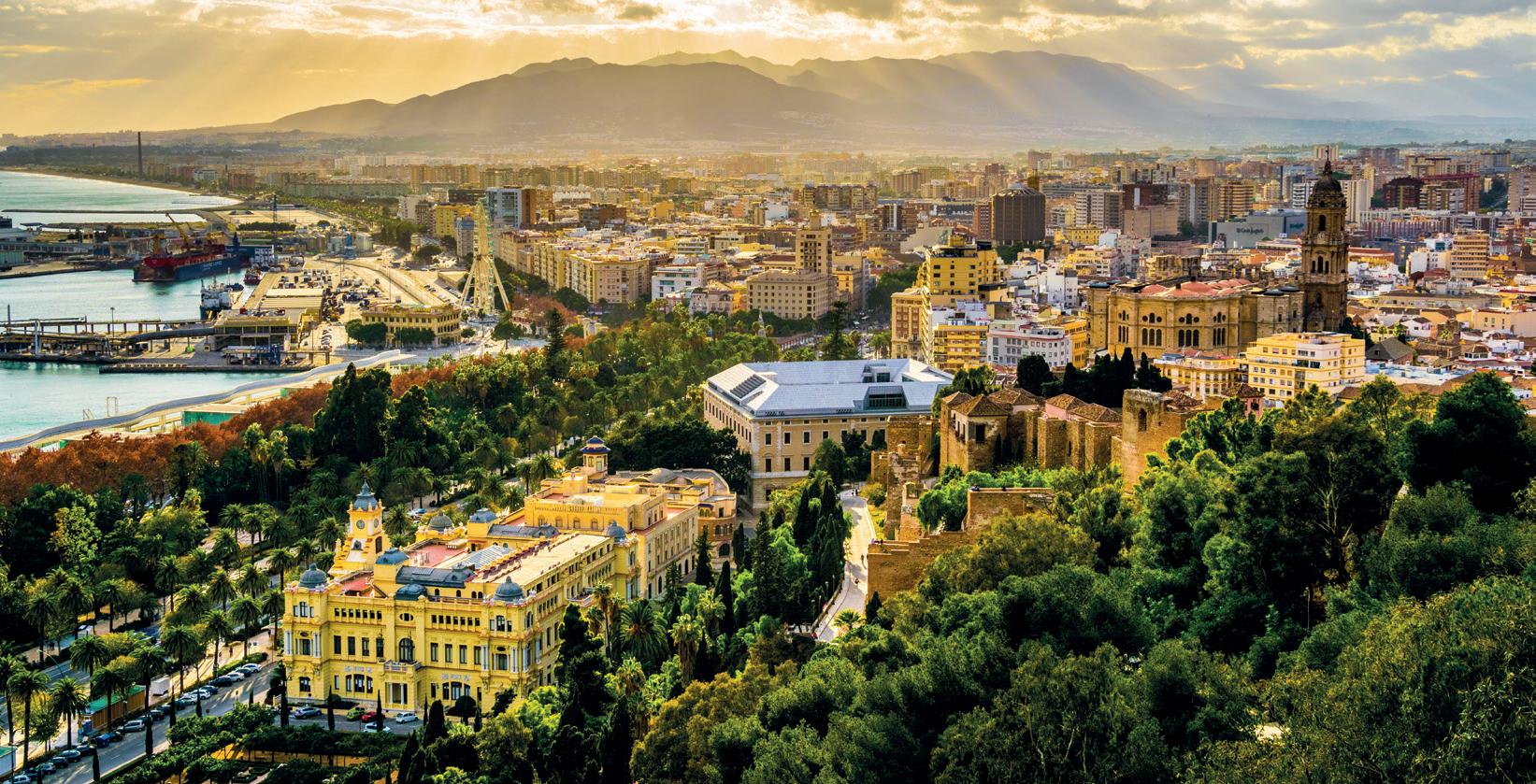
MALAGA’S housing market is hotter than ever and prices are now nearly 50% more than at the peak of the 2007 property bubble.
In just 10 years, the price of a standard 80m² flat in Malaga has rocketed from a relatively modest €125,000 to a jaw-dropping €331,609.
That’s a 164% increase, putting the coastal city in the upper echelons of Spain’s property hotspots.
According to the latest figures from Fotocasa, Malaga has hit an all-time high, with the price per square metre now standing at €4,145 - nearly 50% higher than the peak of the 2007 property boom. Back in the heady days of April 2007, the cost per square metre was €2,778. Following the bubble burst, prices plunged by more than half before starting to gently recover in the following years. While the market took a brief breather during the pandemic, the boom began again in mid-2015, with year-on-year increases regularly pushing past 20%. In fact, the Malaga property market has been seeing uninterrupted growth since the pandemic’s end in 2021, with no sign of slowing down anytime soon. Malaga is now officially one of Spain’s hottest property markets - and it shows no signs of cooling off.
Local experts claim that this rapid growth is largely down to a combination of factors: high demand from both national and international buyers, a limited supply of new housing, and the city’s appeal as a prime destination for both remote workers and foreign investors.
The city’s transformation over the past decade - from tourism hub to business hotspot - has turned it into a real estate goldmine, but it’s come at a cost.
At the peak of the 2007 property bubble the same 80m² apartment in Malaga would’ve set you back an ‘unaffordable’ €222,232 - still a far cry from today’s staggering €331,609. Experts claim that Malaga’s meteoric rise reflects a structural shift in the demand for housing. Maria Matos, head of research at Fotocasa, explained: “Malaga is now one of the most dynamic and tensioned residential markets in Spain. The fact that property prices are 49% higher than the peak of the 2007 real estate bubble shows just how much demand there is, both locally and internationally. The city’s transformation over the last few years has made it a magnet for foreign investment, tourism, and remote workers.” Malaga’s housing market is now 53% more expensive than the national average, and while prices have started to moderate slightly in 2025, they’re still historically high.
Even smaller cities like Ourense have seen a massive 600% jump in short-term lets.
“Tenants are being left with less protection, higher costs, and nowhere to turn,” warned one housing watchdog.
TWO coastal cities in the Basque region are among the most expensive places to buy or rent properties in Spain.
San Sebastian and Bilbao both sit in the top five priciest spots in the country.
The new study by Idealista shows the top 10 is more or less the same as it has been for years.
After San Sebastian come Spain’s two biggest cities - Madrid and Barcelona, before Palma, in Mallorca, makes an appearance. Malaga comes in sixth, with Valencia in seventh and Sevilla eighth.
The major change, is that the high prices are getting even higher, making it even harder for people on modest incomes to get into the property mix.
The top 10 list is:-
● San Sebastian
● Madrid
● Barcelona
● Palma de Mallorca
● Bilbao
● Malaga
● Valencia
● Sevilla
● Las Palmas de Gran Canaria
● Girona
PRICES for new homes in Spain will continue rising in the second half of 2025.
It comes after prices reached an average of €3,151 per m2 in June - a yearly rise of 7.5%.
And a report by appraisal company, Sociedad de Tascion, predicts the price will be €3,291 by the end of the year.
New properties - around a fifth of the market in Spain - cost 44% more than second-hand homes.
Reasons for the variation include higher building standards and better energy efficient structures, along with a lack of supply.
Consuelo Villanueva from Sociedad de Tasacion, said: “The availability of new builds is seeing a slight improvement after a 19% increase in the number of new construction permits in the first quarter of 2025 compared to last year.
“However, it still remains well below the levels necessary to meet the demand of the market,” she warned.
Villanueva added that inflation had put pressure on household purchasing power and that the rise in property prices ‘structurally limits the ability to access housing’,



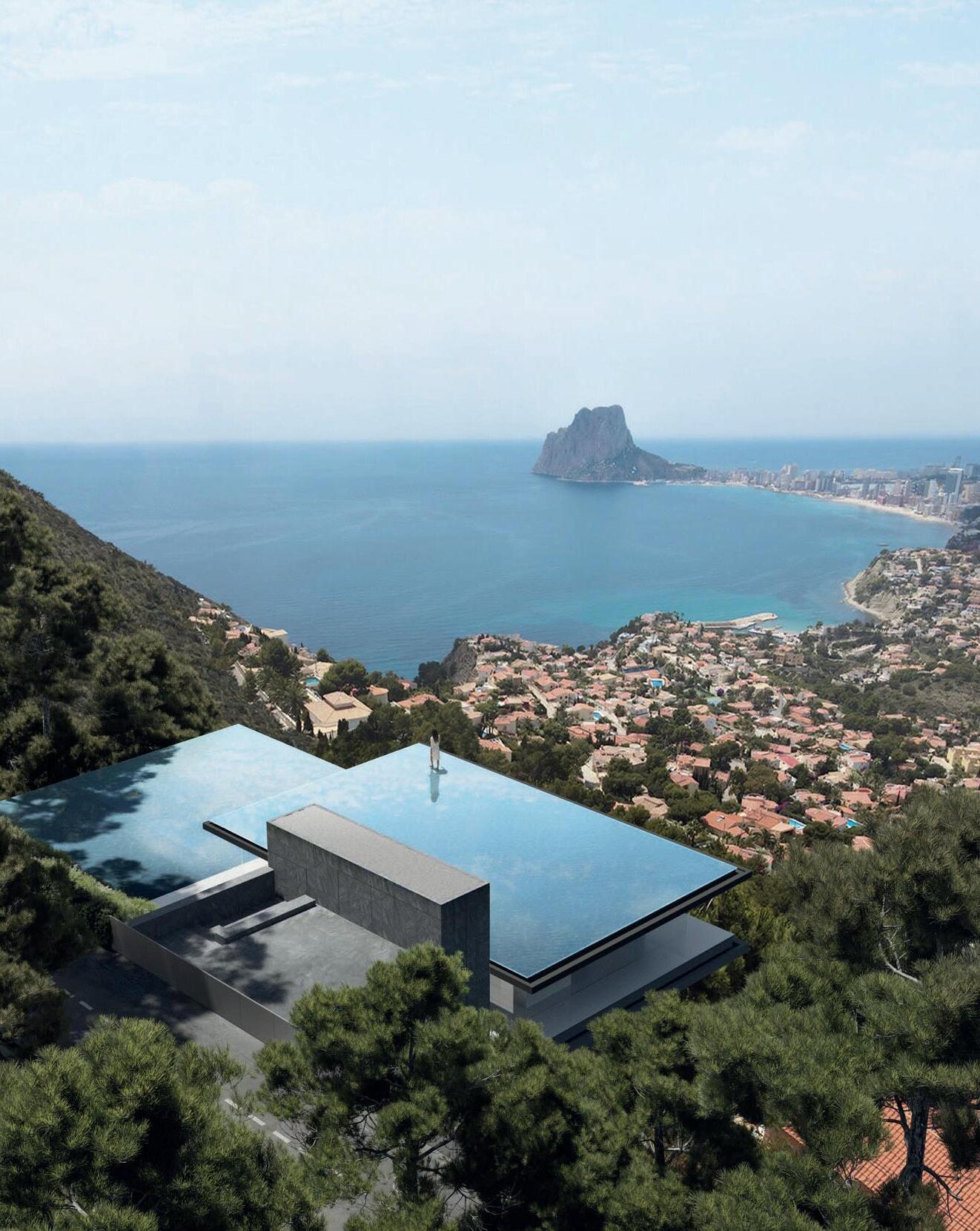
How a Valencia architect is making a global name by working with the landscape around him
DRAWING inspiration from the natural beauty of the landscapes they inhabit, Fran Silvestre designs properties that seamlessly integrate while maintaining their signature style.
His Valencia-based architecture studio is known for its playful geometric design, luxe swimming pools and impeccable white walls - elements that can be found throughout its properties. However, the studio also values connecting each property to the nature it is set in.
The firm boasts a diverse array of designs, from vineyards to cityscapes, jungles to
By Maia Pak
mountainsides… and in each, the location and design varies greatly; some properties mimic the natural curve of the land while others use shallow water to reflect the landscape back to its owners. Silvestre’s designs demonstrate a commitment to balancing multiple interests with a united product.
This focus is not only reflected through the homes, but in their impact on the users and the builders involved in its development.
Featuring large sheets of water constructed from natural grey stone, Casa Espejo de Agua illuminates an intense blue colour, reflecting the skies above and the ocean below. The property is nestled among four notable landscaping elements - the Ifach Rock, the Mediterranean Sea, Mascarat Mountain and the Olta Mountains
- and is located just outside of an urban area. The blanket of water, draped over the home, tethers it to nature, and envelops the rooms below.

From an aerial view, Casa Sabater can be seen zig-zagging through a tropical jungle of palm trees and lush vegetation. Striking a balance between the organic elements and the studio’s signature geometric
style, the residence spreads around a series of existing large trees. Though the large windows remain minimal, they are juxtaposed by the eye-catching shape which contours to the gentle curve of the land.


By P OO LVILLAS
Professional photos • Well-maintained accomodations 24/7 customer service for your guests





Five circles of various sizes may appear as a typical family home, however, Villa Noon boasts the very same kitchen, bedrooms and dining

November 29th - LOOKING FOR MORE PROPERTY STORIES?
Scan to visit our website


room as many other residences. The cylindrical volumes are of various heights, contouring to the slope of the land and overlooking
the La Reserva development, in Sotogrande. It carefully maximises on the views towards the sea and Africa beyond.

Aligned perfectly to the curvature of the vineyard it sits atop, Bodegas Dominio D’Echauz melds unique architecture with functionality as a winery. The long design of the property reflects the process of making wine, from the arrival of the grapes, to fermentation, aging and bottling the wine. Thoughtfulness defines this property, even down to the building's elements using a cork-based mortar, which pulls together the design visually, as well as optimising the conditions for wine aging.

A striking wall of thin, vertical panels line the side of Casa Piera. The residence draws inspiration from what many may see as a limitation: a set maximum height for opaque fences surrounding residences in many municipalities. The unique fence veils Casa Piera, allowing just the right amount of light to pierce through, while also allowing its residents to keep their privacy.

Constructed within a small portion of excavated mountain, La Montaña Vacia, boasts a low-impact focus. From an outside view, only the deck pool and a sliver of the minimalist living area can be seen, peeking out from the lush,
mountainous range. The virtually unobstructed topography mirrors the overall focus on sustainability, as the residence itself has a naturally regulated temperature from the mountain’s high resistance to temperature changes.



INSPIRATION: Ray Winston’s
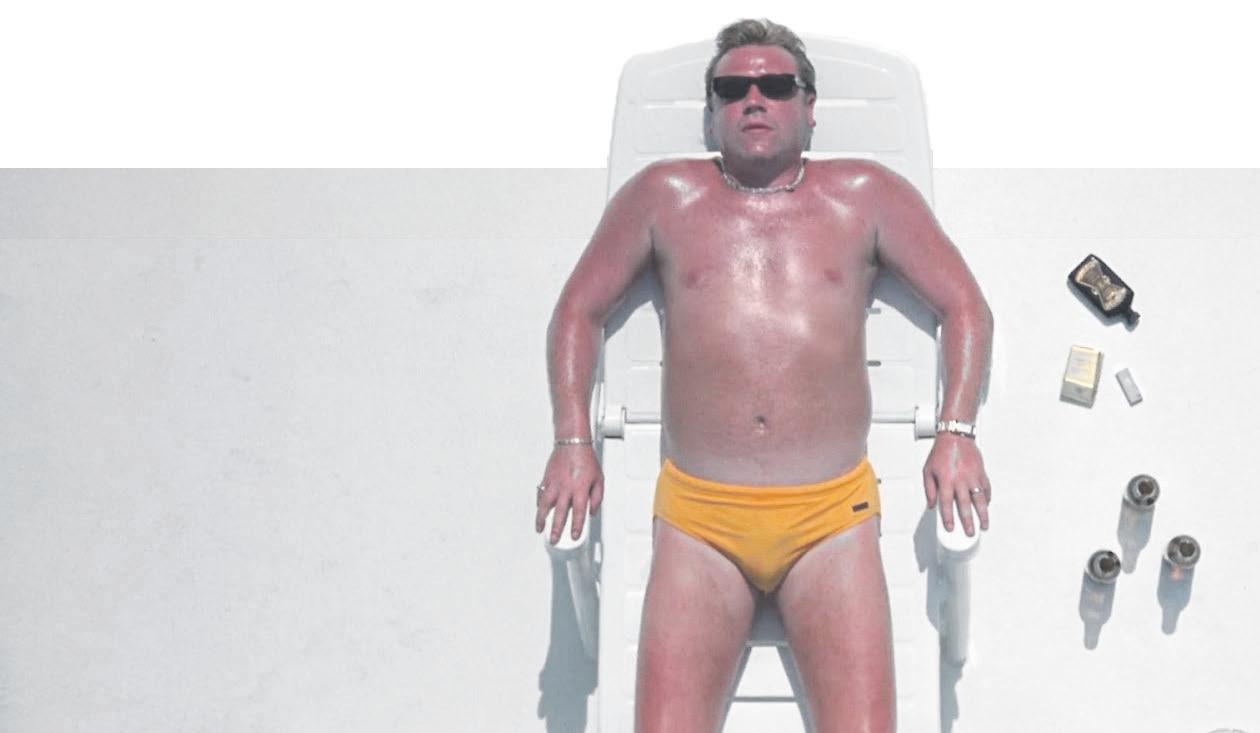
was

August 28th - September 10th 2025



Mickey ‘The Pimpernel’ Green, a British expat gangster who built an €80million empire, dodged capture for decades before dying at 77 in his luxury hideout near Estepona.
His drug empire, dubbed The Octopus for its vast reaching tentacles, made him a criminal mastermind and the inspiration for Ray Winstone’s character in Sexy Beast.

Stunning success of our latesummer sale shows the power –and primacy? – of digital news
WHILE the Olive Press is staunchly committed to the community values and merits of a physical newspaper, we have to admit that the digital world is coming up fast.



NOTORIOUS: Ronnie Knight (pictu-
never
British drug lord, Monk, who ran a £60million cocaine empire for over 20 years, was finally arrested in

2015 at his luxury hideout in Javea.
Living under a false identity, the 54-year-old fugitive ran his operation from his fortified villa, rarely stepping outside for fear of rivals and arrest.
Police say he led the life of an ‘authentic fugitive’, relying on friends to smuggle in food.
He was jailed for 18 years in 2017.
This British criminal was best known for his suspected role in the 1983 Brink’s Mat gold heist, earning his nickname after being accused of melting down some of the stolen gold.
Originally a market trader and gold dealer, Palmer later built a multimillion-pound timeshare empire in Tenerife, which authorities believe was funded by his criminal activity.
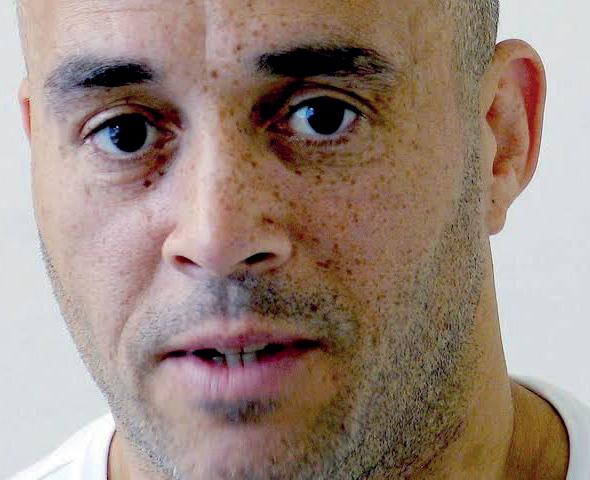
Serial conman and fraudster, Acklom, began his career as a criminal at 16, posing as a stockbroker to steal £1million with his dad’s AmEx card.

To escape investigation and enjoy his wealth, Palmer lived in the perceived safety of Spain’s lawless playground. In 2015, he was shot dead at his home in Essex in what was widely believed to be a targeted gangland killing. He was 65.
Notorious drug baron, Curtis ‘Cocky’ Warren, once Interpol’s Target One and a Sunday Times Rich List name, built a global illicit empire worth tens of millions. Warren was jailed but released in 2022 after 14 years. Now 61, he remains under strict crime prevention orders in the UK.
divorcee, Carolyn Woods, of her £850,000 life savings.

Jailed five times in Spain, he was behind bars when UK police learned he had allegedly romanced and fleeced
In 2017, the Olive Press tracked the fugitive to Murcia, tracing his wife to a business address and discovering his rented home. We just missed him as he fled to Switzerland, where he was finally arrested in 2018. Now 51, he is serving a prison sentence in the UK for fraud.


Wilson, a key player in the Great Train Robbery and the Brink’s Mat heist, fled to the Costa del Sol, settling in Marbella with his wife, Pat. There, he was suspected to have been involved in a drug smuggling network of cocaine suppliers threaded through Europe, leading to Pablo Escobar’s cartel in Colombia.
In 1990, Wilson was gunned down at the age of 57 during a family BBQ at his luxury villa in Marbella. His killer’s identity remains buried in the shadows of the clandestine criminal underworld.

There is something intangibly important – and not just in a nostalgic way – about a newspaper that you pick up and read, knowing that your friends and peers have picked it up too.


SUCCESS: The sale may be over but you can still get three months for the price of one
In the digital world, on the other hand, we all tend to hive off into our own bubbles and echo chambers, united with people far away but separated from those around us. But the success of our recent late-summer sale shows that more and more people are consuming news through their phones and computers. And the Olive Press seeks to unite these digital consumers with our unbeatable online reporting that doesn’t approach the news from one angle or one political ideology.
Over seven days from Monday to Sunday August 24, we offered readers the chance to get an annual subscription to the Olive Press website with a 50% discount.
This was full and unfettered access to all our breaking stories, news features, restaurant and trip reviews, in-depth investigations and so much more which – due to the physical constraints – don’t all make it into the newspaper.
GRAZING: Keeps undergrowth down, reducing the fire risk


bounce back.”
As fi res continue to ravage large parts of Spain this summer,the recovery of the sierra serves as a reminder of the importance of natural processes and wildlife in restoring destroyed ecosystems. In the face of wildfi re seasons, conservationists are turning their attention to reintroducing large herbivores like bison in fi re-prone areas. These animals play a key role in keeping vegetation under control and ensuring the land can regenerate after disaster strikes.
“We’ve seen firsthand how the bison can help restore a burnt landscape,” Moran said. “With wildfires becoming more frequent, their role in these ecosystems will only become more important. It’s proof that even in the worst of times, nature can recover if given the right tools.”
The British criminal and fraudster, who was often referred to as ‘The UK’s most wanted woman’, spent years evading capture when she fled the UK in 2013.
Panitzke spent almost a decade on the National Crime

Agency’s most-wanted list after fleeing the UK during her trial for involvement in a £1billion tax fraud scheme.
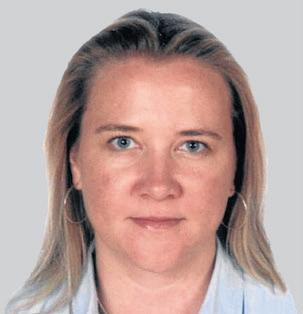
Living under a fake identity in Santa Barbara and Tarragona, she evaded capture until her time at large came to a dramatic halt in January 2022, when a tip off led to her arrest while walking her dog. She is serving a sentence for fraud and will be eligible for parole in 2027. None of the money has been recovered.
Once dubbed the Godfather of London and largely associated with the Kray twins, British gangster Foreman fled to Marbella’s infamous ‘Golden Mile’ after the 1983 Security Express robbery. There, he bought a nightclub to


blend into the local scene. But his serene Spanish hideaway came to a halt when police ‘illegally’ defied non-extradition laws, detaining him and flying him back to the UK in the late 1980s. Now aged 93, he lives in London, one of the last surviving figures of the Kray era.
Patrick Adams’ Clerkenwell Crime Syndicate operated in London’s underworld throughout the 1980s and 90s.
In the late 80s, at the height of their notoriety, they controlled the majority of cannabis, ecstasy and cocaine entering the capital.
In 2015, an international manhunt targeted Torremolinos for leading gangster Patsy who was wanted in connection with a gangland attempted murder two years prior.
The then 59-year-old, known as the ‘enforcer’, reportedly owned a luxury villa near Torremolinos with his wife Constance, who was also wanted. He was later sentenced to nine years for causing grievous bodily harm with intent.

It’s a wealth and breadth of information about Spain and life in this beautiful country for visitors and expats that can’t be found elsewhere. And the response was immediate. As soon as the first email went out advising our readers of the sale, sign-ups spiked.
Hundreds of people signed up over the course of the week, with the line graph going off the chart on the final day of the sale.


It is the dedicated subscribers who are willing to pay to read our reporting that are fast becoming the life blood of the business – and we thank them all.
But we also want to thank the readers of the newspaper too – some long and loyal people who’ve been with us for the nearly 20 years we’ve been around on Spain’s costas.



Scan the QR code to subscribe to the Olive Press
HEALTH authorities in Catalunya have issued an urgent warning urging residents to avoid all contact with bats following a spike in potentially dangerous encounters across the region.
Officials recorded 22 incidents in the first seven months of 2025 – a quarter of all animal attacks reported by July.
While no human rabies cases have been detected in Spain, bats remain the main carriers of the European strain, capable of transmitting the fatal disease through bites or scratches. Authorities urge residents never to touch bats, even if injured, and to seek immediate medical care after any contact.


Japanese company responsible for UK Post Office Horizon scandal to develop AI in healthcare
THE Japanese tech giant behind the UK Post Office’s notorious Horizon system – which saw hundreds of innocent subpostmasters wrongfully convicted – has struck a deal to provide AI software for Andalucia’s health service.
Fujitsu, whose faulty Horizon programme led to one of Britain’s worst miscarriages of
SPAIN’S sweltering August temperatures may have you reaching for that ice-cold gazpacho, but don’t fall for the summer diet hype flooding social media. Nutritionist Vanesa Cortes advises sticking to fresh, local Mediterranean foods – watermelon, melon, cucumbers, tomatoes, and cold legume salads – and listening to your body rather than following internet ‘cleanses’ and ‘detox diets’..
By Dilip Kuner
justice, will establish an AI research lab in the region as part of efforts to modernise public healthcare and improve disease diagnosis.
But its involvement has sparked alarm. The Horizon system misrepresented financial data,
Endocrinologist Belen Silveira warns that hydration is the real priority, especially for the over65s, whose sense of thirst declines. Plain water is sufficient, though fruit, mint or cucumber can add variety. Exercise is fine if timed sensibly, avoiding the 11am – 5pm sun. Cortes sums it up: “Taking care of yourself is compatible with enjoying yourself. Eat well, hydrate, and trust your body – extremes aren’t necessary, even when temperatures soar above 40C.”


leading to over 700 subpostmasters being wrongly convicted of fraud, theft and false accounting. Many lost jobs, homes and even their freedom before the courts overturned their convictions.
A UK parliamentary inquiry condemned Fujitsu for failing to act sooner,


and although the company has apologised and pledged compensation, campaigners argue it has not done enough to repair the damage.
Alan Bates, founder of the Justice for Subpostmasters Alliance, warned Spain to tread carefully. “Fujitsu’s involvement in public services should raise alarms,” he said. “They’ve caused immense harm here in the UK, and yet they seem to be moving forward with little accountability.”
Digital health experts have also voiced concern. Dr Peter Bradley said: “Fujitsu’s history with the Horizon system raises legitimate concerns about its ability to handle critical data like medical records. Trust is essential in healthcare, and given their past failures, there are serious questions about whether they are the right fit for this kind of work.” Fujitsu insists the Horizon errors were unintentional and says its technology is now more reliable.


A WARNING has been issued that killer mosquito-borne diseases like West Nile Virus will soon be the ‘new normal’ in southern Spain. Health chiefs at Europe’s ECDC say rising temperatures, longer summers and wetter winters are turning Andalucia into a breeding ground for tropical bugs.
Sevilla is the worst-hit hotspot, with Puebla del Rio and Coria del Rio plagued by repeated West Nile outbreaks. Cases have also spread to Cadiz, Huelva, Cordoba, Malaga and Jaen. Officials have urged people – especially kids, pensioners and the vulnerable – to slap on repellent, cover up with long sleeves and sleep under nets to avoid potentially fatal bites.
WOMEN give off a more fragrant scent when they ovulate –and men can’t help but notice, a Japanese study reveals. Researchers at Tokyo University discovered three compounds in underarm sweat that spike during ovulation, turning the smell from ‘vinegary’ to downright alluring.
Men who sniffed the ovulatory scent rated photos of women as more attractive and feminine – and even relaxed more, with stress levels dropping in their saliva.
The ‘magic trio’ includes geranylacetone (floral-green aroma), tetradecanoic acid (linked to newborn feeding responses), and palmitoleic acid.


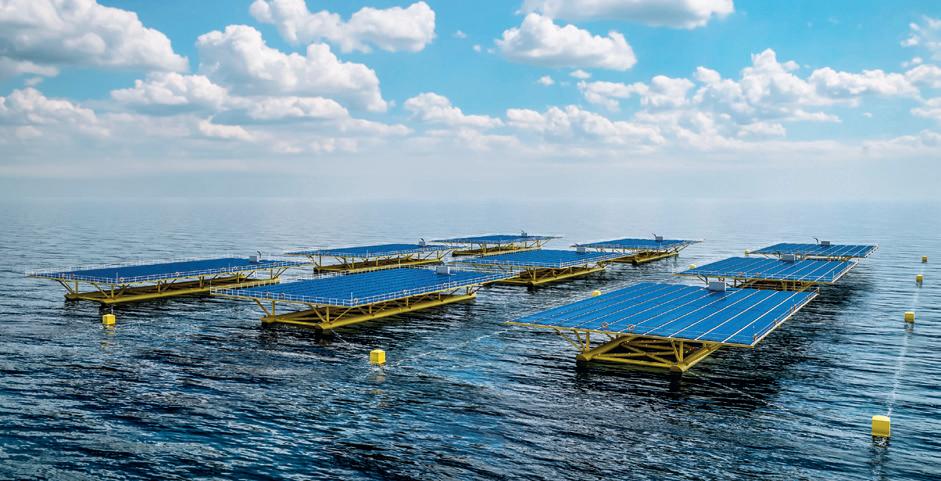
SPAIN’S public debt dropped to 103.4% of GDP in June, down 1.9 percentage points from a year ago, the Bank of Spain has revealed.
SPAIN is making renewable energy history as work begins on the country’s first floating solar platform, set to be deployed off the Port of Valencia.
The keel for the pioneering structure was officially laid this week at the Factorias Vulcano shipyard in Vigo, with Astilleros San Enrique leading the build.
The project, known as PV-BOS, forms part of the ambitious BlueNewables initiative launched in March 2025, which will eventually see two floating solar units producing 1 MW combined. Final assembly and testing are due
in 2026, with annual output expected to hit 1,500 MWh.
Unlike land-based solar farms, the floating design preserves valuable land while using Spain’s vast coastline to deliver renewable energy at sea - a concept already hailed as a blueprint for global expansion.
BlueNewables celebrated the milestone on LinkedIn, calling it a ‘major leap forward’.
Meanwhile, Astilleros San Enrique is also building six offshore wind vessels for UK operator Tidal Transit, further cementing Spain’s role in Europe’s green transition.
Bank of Spain warns heirs could be liable for the deceased’s debts
SPAIN’S IBEX 35 stock index has topped 15,000 points for the first time since the 2007 property boom.
The milestone sparked comparisons with the lead-up to the housing crash and recession nearly two decades ago.
But Transport Minister Oscar Puente insisted the rise is ‘based on solid foundations’, not a bubble.
The IBEX has surged nearly 30% this year, fuelled by strong corporate profits and hopes of interest rate cuts.
Investor optimism has soared on falling inflation and global growth hopes.
By Walter Finch
Despite the drop, the total debt was a staggering €1.691 trillion, marking a 4% annual increase.
The central government accounted for most of it, with the state alone holding €1.534 trillion, or 93.9% of GDP.
Social Regional governments owed €342.6 bn, and local authorities
€23.4 bn, while the social security system’s debt jumped 8.6% to €126.2 billion.
Debt held across multiple public administrations rose 3.4% to €371 bn.
Long-term bond issuance grew by 4.6%, while longterm loans dropped slightly.
Short-term borrowing rose 3.8% year-on-year.
HEIRS in Spain who don’t formally reject an inheritance could find themselves personally liable for the deceased’s debts - including outstanding mortgages, credit card bills and even unpaid utility bills.
The Bank of Spain has warned that many people wrongly believe debts die with the deceased, when in reality Spanish law passes all financial obligations directly to inheritors alongside any assets.
Under the country’s inheritance laws, heirs automatically receive both the good and the bad – unless they take specific legal action to protect themselves.
Those who accept an inheritance where debts exceed assets will be forced to pay the shortfall from their own personal wealth, potentially putting their homes and savings at risk.
The warning comes as legal
experts report growing confusion among expat families about their rights and obligations when inheriting Spanish property and assets.
“If you don’t formally renounce or accept with conditions, the law assumes you’ve accepted everything,” explained lawyers from Altima Abogados. “This can be financially devastating for families.”
The most common inherited debts include personal loans, outstanding mortgages, unpaid taxes to the Hacienda (Tax Agency), Social Security contributions, credit card balances and even community fees or utility bills.
Spanish law offers three options for handling problematic inheritances. Heirs can accept everything outright, renounce
BANK OF SPAIN: Has issued a warning to inheritors

completely, or choose the safer ‘beneficio de inventario’ route. This third option allows inheritors to settle debts using only inherited assets, meaning they keep whatever remains but aren’t personally liable if debts exceed the estate’s value.
If heirs renounce entirely and debts outweigh assets,
the Spanish state assumes responsibility for outstanding obligations. Legal experts advise all potential heirs to seek professional advice before making any decisions about Spanish inheritances, particularly where property or significant assets are involved.
However, analysts warn of ‘excess optimism’, as such gains have rarely come without a slump in company earnings.
SPAIN’S exports to the US dropped 5% in early 2025, as Donald Trump’s trade war began to bite.
Official figures show total exports hit €197.1 bn in the first half of the year – up 1% overall – but sales to the US fell to €8.75 bn, while exports to China soared 14% to €3.95 bn. Trump’s return has redrawn global trade flows, with his 15% tariff on EU goods already disrupting supply chains. In response, Madrid has leaned east – deepening ties with China, defending Huawei contracts, and boosting agri-food exports. But with Chinese imports also surging, Spain’s trade deficit has now hit €25.1 bn.
WHAT large financial risks do you currently face? That your investment portfolio might suffer losses if there’s a sudden stock market downturn?
Maybe, but oftentimes your biggest financial risk occupies the same house as you and calls you ‘Mom’ or ‘Dad’.
That’s right. Regardless of where your children are raised or educated – the UK, the US or Spain – it’s often challenging to teach them financial responsibility. Few kids know how to resist the strong influence of peer pressure on their spending habits, or to avoid the troubling temptation of credit card debt. Fewer still demonstrate a natural inclination to be thrifty with money.
Nor can we count on schools to help.
dom taught as a distinct subject – it’s often mixed into optional courses and through voluntary programs.
Two lessons for your kids: spend less than you earn and start now
Personal finance education is not universally required in the UK: it varies significantly across England, Scotland, Wales, and Northern Ireland. In the US, only 26 of the 50 states require high school students to take a personal finance course. In Spain, although financial education exists in high schools, it’s sel-
Thus, the task of teaching our children the value of money and the importance of saving often falls on parents. Although I’ve worked 25 years in the financial sector, I think only two lessons are worth passing on to your kids: spend less than you earn and start now. Spend less than you earn The fundamental principle of money management is that you need to spend less than you earn. That means the most important financial skill a child can learn is the ability to delay gratification. However, this is frequently a difficult skill to acquire. To that end, it is vital to give youngsters financial responsibility. It can be as simple as giving them a small allowance at a young age. They’ll likely buy candy with the money. As they get older, you can elevate this to a clothing allowance. Maybe even help them
set


You should try to set up a system where instead of you saying ‘no’, your kids have to say ‘no’ to themselves.
It’s never too early to introduce children to concepts like earning, saving, and investing. It’s unlikely you can prevent your kids from making significant financial mistakes in their lifetime. But it is much better if
they make those blunders while they’re young and the sums involved are modest.
Storytelling is a good first step. It can introduce children to the financial priorities and values that are important to your family. And conversations are typically more effective than lectures. Stories are a great way to pass lessons from one generation
are serving them, you should help your kids learn to cook for themselves.




HEN Cayetano Ordoñez (‘El Niño de la Palma’) hit the big time as a bullfighter, he bought himself a finca. Cayetano was a gypsy, and had been raised in poverty in Ronda. His father made a precarious living as a cobbler.
By Michael Coy

We’re talking a hundred years ago. Señor Ordoñez’ customers were illiterate, so – as a marketing ploy – he
Work remotely and enjoy Spanish sun with the Digital Nomad Visa
SPAIN continues to be a massive draw for digital nomads looking to work abroad. There’s just something about the Mediterranean lifestyle, weather and Spanish culture that draws so many to the area.
Do you imagine yourself soaking up the sun or going for a swim after work? How about spending weekends sipping cava under a palm tree? It could be easier to work and live in Spain than you think – if you can work remotely via the internet.


A digital nomad visa is a temporary permit for professionals who work remotely via the internet and for a foreign company, whilst living in various locations around the world.
The Spanish Digital Nomad Visa has minimum eligibility

criteria. Assess your eligibility for the Spanish Digital Nomad Visa using the FREE digital-nomad-visa-assistant. com eligibility questionnaire: digital-nomad-visa-assistant. com is a visa consultancy assistance service which specialises in all types of Spanish visa and in particular digital nomad visa applications. They also support all types of visa applications or renewals for most EU countries and the UK. digital-nomad-visa-assistant. com offers an efficient, personalised visa application service at market leading rates. Engage your own visa application account manager today for a market leading €99/month. Allowing you to spread the cost of your digital nomad visa application over their average organisation and processing times of circa three months.
Contact digital-nomad-visa-assistant.com and enquire or request a FREE digital nomad visa eligibility assessment for your preferred destination country today.
It’s easier to live in paradise than you think. Join the digital nomad revolution. # Work and Live Anywhere.
placed a big palm frond over his shop doorway. When people needed their shoes re-soled, they knew to head for ‘La Palma’. Bullfighters need nicknames. Think of Manuel Rodríguez, the greatest of them all. How many young men in Andalucia
How Orson Welles swapped Beverly Hills for bullrings – and chose Ronda as his eternal home

are named ‘Manuel Rodriguez’? Thousands. But ‘Manolete’ stands out from the crowd.
That’s why young Cayetano called himself, ‘The Boy from La Palma’. What has any of this to do with Orson Welles?
The finca, ‘El Recreo’, was handed down to Cayetano’s son, another bullfighter, Antonio Ordoñez. Antonio was on very friendly terms with Ernest Hemingway and, later, Orson Welles.
The two Americans were big fans of the bulls, and were frequent guests at El Recreo.
To this day the finca has remained in Ordoñez hands. It was once in the countryside, half a mile outside Ronda, but urban sprawl has now enveloped the area. El Recreo, however, still stands proud. When Welles, the great actor-director, died suddenly in 1985, among his papers was found his hand-written wish to

be cremated – and to have his ashes sprinkled in the finca’s well in his beloved Ronda. Clearly, El Recreo was emotionally very important to him, and his wish was carried out. The farm’s well is now known as the ‘Pozo Orson Welles’. Welles was born in Wisconsin in 1915. His colossal talent was obvious from very early on. At 16 years of age he toured Ireland on his own, and talked his way into acting roles in Dublin’s Gate Theatre.
Back in the USA, he conquered Broadway as a young drama director of genius. Progression to Hollywood was the next obvious step.
He was 25 years old when he wrote, directed and starred in Citizen Kane, a film which critics regularly vote to be ‘the greatest movie ever made’. Charles Foster Kane is a fictitious newspaper magnate, along the lines of Rupert Murdoch. Through a kaleidoscope of stunning images, we watch Kane’s life as he goes from a young, optimistic hero to a sad, broken old man. He had fabulous wealth, but he wanted love – and never found it. Immediately before the sensational Citizen Kane, Welles caused an enormous stir with his radio production of The War of the Worlds. He came up with such a powerful, con-

vincing rendition of the HG Wells novel about martians invading the earth that thousands of Americans thought it was really happening. People packed up the family car and fled their homes to get away from the martians!
Because of his high intelligence and intimate knowledge of cultural traditions, Welles was drawn to Europe. After World War Two he spent most of his time (and made many of his films) in Italy and Spain.
He followed the bulls, year on year. An honoured guest, he rubbed shoulders with Spain’s finest. Matadors frequently dedicated their ‘toros’ to him.
But Spain was more than a spectacle for Welles – it was a sanctuary. By the 1950s and 1960s, he was a man in constant battle with Hollywood studios, critics, and his own health.





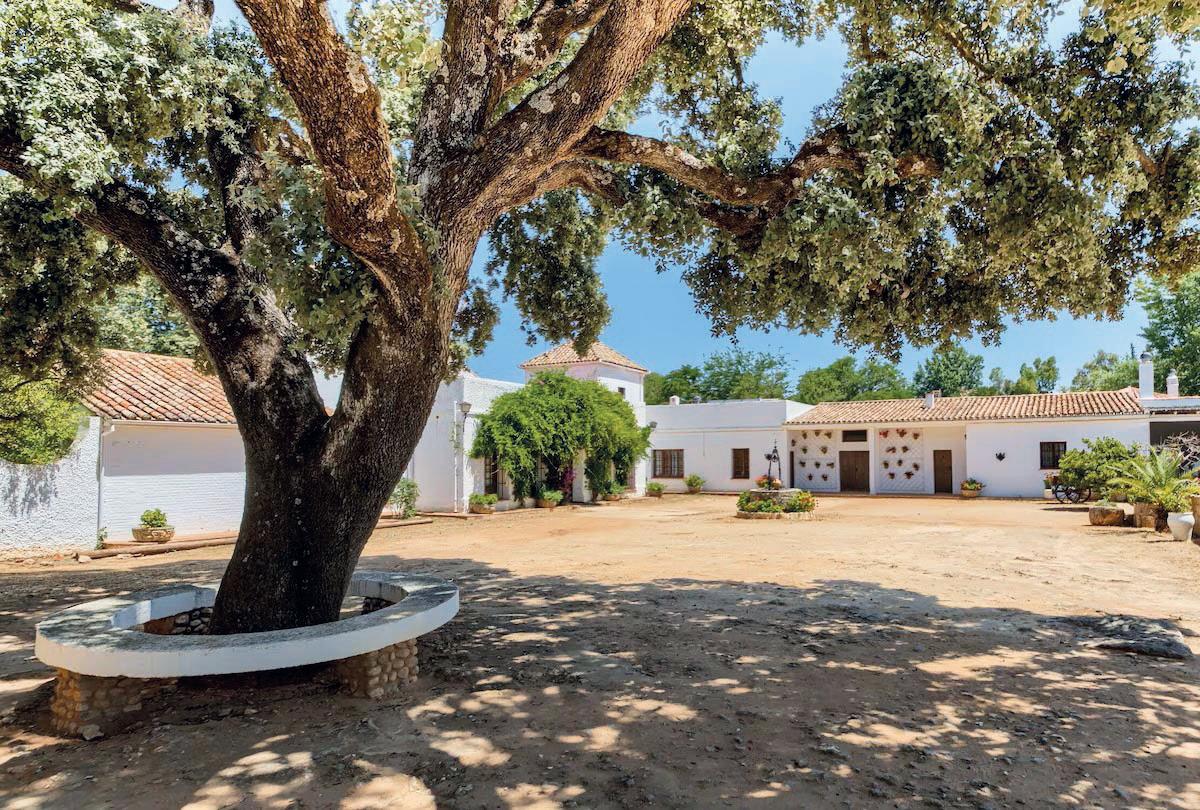

He carried his immense bulk with difficulty, often suffering from gout, swollen legs and shortness of breath. Walking the cobbled streets of Ronda was no easy feat, but the town gave him peace. Locals recall seeing him at bars and cafes, sweating heavily in the summer heat, but always surrounded by admirers. He was witty, magnetic, and larger than life, yet there was sadness too. Friends said Welles felt misunderstood, abandoned even, by the American industry he had once conquered. Spain, with its long dinners, bullfights and traditions, offered him something different: respect without judgement.
Across: 6 Trio, 7 Acolytes, 8 Episodes, 9 Damp, 10 Refreshments, 13 Drawing board, 16 Jedi, 18 Pregnant, 19 Objector, 20 Owen.
Down: 1 Drop-dead, 2 Conservatives, 3 Folsom, 4 Lyndon Johnson, 5 Helm, 7 Addis, 11 Han, 12 Stranded, 14 Inputs, 15 Greer, 17 Elba.

Ronda, in particular, became his refuge. At El Recreo he could eat, drink and laugh with Antonio Ordoñez and his family, away from the pressures of Hollywood. “He found in Spain a kind of family,” one friend remarked, “and in Ronda, a home.”
It is interesting to note that this man, a social lion in New York, London, Paris and Venice, chose to have his ashes scattered in little Ronda.
We can only suppose that the most precious memories that he carried into his old age were of tranquil, sun-kissed evenings, laughing and telling stories with dear friends, and drinking
around the garden table at El Recreo – the place where Orson Welles, for all his brilliance and pain, finally found rest.




CATALAN police have dismantled several Barcelona phone-snatching gangs, seizing 1,000 mobiles, and launched an online database where victims can enter their IMEI number to reclaim stolen devices.
JEREMY Clarkson has sparked outrage in Spain after branding A Coruna ‘one of the worst places’ he’s visited, despite the Galician city attracting nearly one million tourists in 2024.
AN Ibiza restaurant faces a watchdog complaint after allegedly adding a €12 ‘bag hook’ charge to diners’ bills, with consumer group FACUA slamming the undisclosed fee as illegal and outrageous.
A SPANISH influencer couple’s dream trip to Puerto Rico descended into chaos after they blindly trusted ChatGPT for travel advice –and ended up stranded at the airport.
In a viral TikTok clip, which has smashed past 6.1 million views, tearful Mery Caldass is seen sobbing while her partner Alejandro Cid tries to console her (right).
“I always do research, but I asked ChatGPT , and it said no,” Caldass wailed, referring to whether they needed a visa. “I don’t trust that



BLOW HERE: Test went horribly wrong for examiner

Spanish influencer left crying at airport after blindly trusting ChatGPT visa advice anymore.”

Here’s the kicker: Spanish citizens don’t need a visa for Puerto Rico, but they do need an Electronic Travel Authorisation (ESTA) – a tiny but crucial detail the AI apparently forgot. The result?
Stranded influencers, online ridicule,
A MAN has been arrested for allegedly dousing a bar in petrol and setting it ablaze because staff did not have mayonnaise for his sandwich.
The incident unfolded in the tiny town of Los Palacios y Villafranca, in the province of Sevilla.
According to police sources, the man first
By Dilip Kuner
and a stark warning about relying on robots for real-world travel planning.
TikTok users were ruthless.
“Natural selection, I guess,” one wrote. “If you’re taking a transoceanic trip and rely entirely on ChatGPT, you get what you deserve.” Others noted the couple may
asked for mayonnaise with his order but was told by a waiter the bar did not have any. Undeterred, he went to the terrace and asked a waitress who gave him the same answer. Enraged, he stormed out of the bar before returning minutes later clutching a bottle of petrol. He then allegedly doused the bar counter in the flammable liquid and lit it, setting the bar on fire.
The man, who was the only one hurt, was taken to a health centre to be treated for burns.
have phrased their question wrong, but the message is clear: AI is no substitute for official sources.
Adding insult to injury, Caldass joked the AI might be exacting revenge for her past insults: “Sometimes I call it useless – maybe this was payback.”
This isn’t an isolated case. A 60-year-old American was hospitalised for three weeks after ChatGPT told him to swap table salt for sodium bromide – a toxic chemical.
Doctors confirmed the AI still recommends it without warnings.
Experts warn: “AI is only as reliable as the data it’s trained on,” said Dr Elena Torres, digital ethics researcher at NYU. “Blind trust can have real-world consequences.”
Despite the fiasco, Caldass and Cid eventually made it to Puerto Rico in time for a Bad Bunny concert – but one thing’s for sure: ChatGPT will never get their travel trust again.


WHAT should have been the most stressful day of their lives turned into a farce when a driving instructor was caught over the limit during his pupils’ test in Palma, Mallorca.
Three hopeful learners had just set off for their test when Guardia Civil officers stopped them at a checkpoint near the airport. To their shock, it wasn’t the rookie behind the wheel who failed – but the instructor in the passenger seat.
He blew over the legal alcohol limit, forcing the exam to be scrapped on the spot. Furious parents blasted him for ‘risking the kids’ lives all morning’. Learners claimed he’d been ‘laughing too much and touching people, and not being himself’ throughout the lesson. To make matters worse, the school is refusing to pay for retests, insisting families cover the fees again. Guardia Civil chiefs have launched a probe after similar boozy scandals rocked the island last summer.
